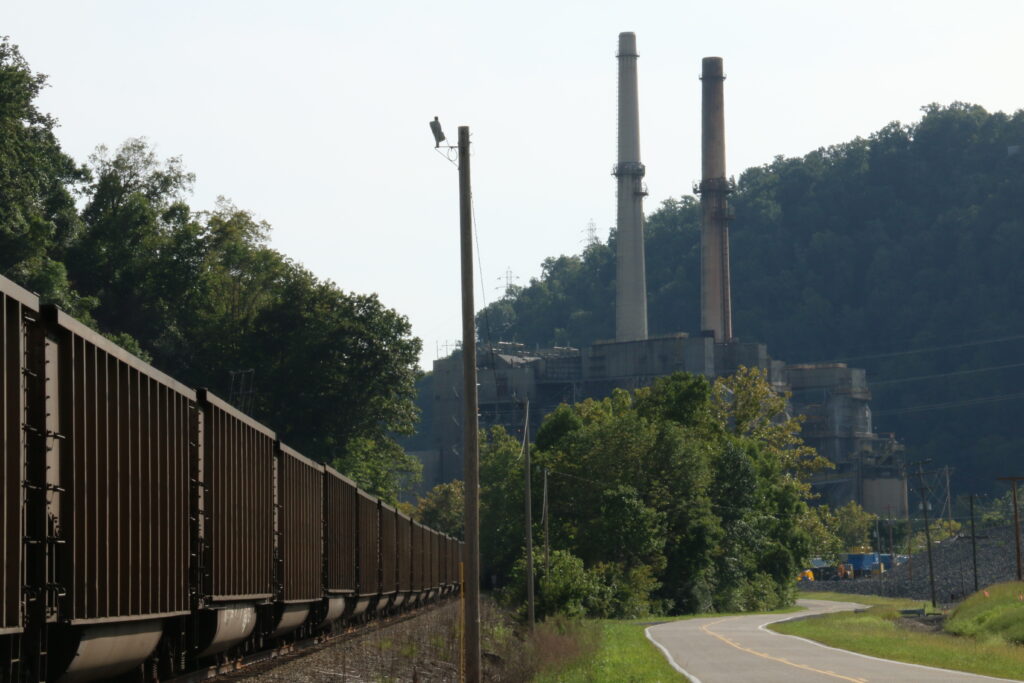Let’s face it…climate change has become so heavily politicized in coal country that it’s nearly impossible to have an intelligent conversation about it. If people even get so much as a whiff that someone is an “environmentalist” they might as well save their breath.
I myself have been accused of being a liberal environmentalist, a label that instantly discredits anyone as being an outsider with zero common sense. While I do consider myself to be an environmentalist (shouldn’t we all care about the air our kids are breathing and the water they are drinking?), I am not a liberal. I am also not a conservative. I am an Appalachian family man who doesn’t want his family to get cancer and prefers natural Appalachian forests to mine reclamation.
So, how do we cut through the political BS? The first place to start is, well, where it all started.
Ethos, Pathos, Logos (aka Rhetoric)
I’ve never been naïve enough to believe companies profiting from coal, oil, and natural gas would tell us about the bad things their industries’ cause. That’s Business 101. Instead, they hire public relations firms to redirect our attention and question the science. This isn’t a conspiracy theory, the oil industry used the same tactics the tobacco industry used when medical researchers discovered smoking causes cancer.
Coal mining families should already know how deceptive and two-faced their employers are. They just need to be injured on the job and file a workman’s compensation claim, or apply for black lung benfits when they can no longer breath.
As Appalachians, we are caught in misinformation campaigns. It starts in our schools where critical thinking has become a dirty word and kids struggle to learn because of their situation. By the time they’ve left their resource poor schools, they are thrust into economic survival where 60 hour work weeks leave little time for recuperation and relaxation, let alone researching the information they’re being fed. Anyone expecting more of Appalachian people without first knowing our day-to-day struggles needs a serious lesson in adversity.
Not only are we prayed upon by extractive industries for our cheap labor and resources, politicians, academic researchers, journalists, and even charitable organizations extract from us as well. We are “mined” for votes, “mined” for research data to further academic careers, and “mined” for news pieces and ideas for the publishing industry. And if we aren’t having these things extracted, our adversities are exploited by non-profits seeking grant funding to help us poor, stupid hillbillies since we obviously can’t help ourselves.
We are not ignorant to these facts, which is why many of us have developed a keen distrust for outsiders.
When it comes to environmental advocacy, especially surrounding climate change issues, people rationalize their opinions based on how it impacts their daily lives. For many Appalachian coal mining communities, the way climate change is perceived is through the “War on Coal” public relations campaign started by the coal company associations. Rather than blame the natural gas industry for out-competing coal in the electrical generation markets, they’ve successfully scared coal mining communities into believing environmental regulations (and the activists that fight for them) are to blame for mine layoffs and long unemployment lines. Of course environmental activists have managed some small victories in that department, but they’ve never been big enough to shut the industry down.
Sadly, and surprisingly, very few environmental justice organizations figured this out. At least, I can’t help but believe that was the case. They never made any meaningful attempts to defend themselves, counter the industry narrative, and work with communities to explain what was going on. Instead, they just kept working to shut mines down without thinking of the economic impacts on coal mining families. They instead focused on what Jonathan Smucker terms the “right equals might” mentality. Just because they are right, doesn’t mean they have the “might” to overcome the coal industry, let alone convince coal communities to risk more extreme poverty transitioning from an entirely extraction-based economy.
Have humans caused climate change?
Yes. As coal miner’s, we should know this (and many do) having seen so much coal leave our mountains. We should also know that we aren’t the ones to blame. We only mined the coal, and often at great costs to our health. The only reason our ancestors mined coal was because outside companies swindled away our mineral rights and left us little economic choice. The only reason we continue to mine coal is because of the economic demand for cheap energy and the powerful corporate interests who own the majority of our mineral rights and continue making a profit supplying everyone’s demand. For them, climate change is bad for business, and they ensure we bare the brunt of market changes to that effect.
Despite knowing these motives, many people continue to believe industry-funded misinformation campaigns, assuming there is a conspiracy behind scientific claims of human-caused climate change. Scientific evidence or no, we just have to look at the world around us along with a few facts about our energy consumption.
According to the Energy Information Administration, in 2013 the world burned over 8 billion tons of coal. That would fill a coal train that wraps the earth 27 times. We burned it all and we’ve done it year after year. Think about it when you look out over a city at night and see the tens of thousands of lights. Think about where all that energy comes from. When you see countless subdivisions with thousands of homes and countless shopping centers, think about all the energy that is needed to heat and cool them, to power the pumps that supply them water, light their spaces, power refrigeration units, and everything else they contain. It is all being generated somewhere and that requires burning something—a lot of something.
And it’s not just coal. In 2010 the world burned 113,000,000,000,000 cubic feet of natural gas. To put that into perspective, a 2,000 square foot home with 8 foot ceilings has 16,000 cubic feet of airspace. 113 trillion cubic feet of natural gas is enough to fill 7 billion homes to 100% concentration. And we burn that year after year.
Every 24 hours in just the US, we burn over 8 million barrels (55 gallons each) of oil, enough to stretch a row of barrels three wide across the US from New York to Los Angeles. That fuel goes into engines and out of tailpipes. Visual this by tying a balloon onto your exhaust pipe and see how long it takes to fill it at idle. Don’t stop thinking about that as you drive at highway speeds where you are going. Don’t stop thinking about it as you pass other vehicles doing the same. Think about all the cars that are on the road at any given time in the US, driving down crowded city streets, interstates, even country back roads. Close your eyes and really think about it. Everywhere you’ve seen a highway full of cars. Every day, day in and day out. How many years have we been doing this? Is it all truly necessary?
The world isn’t too big for us to screw up. We’ve grown from three billion people to seven billion people in just my lifetime.
Companies have made billions, if not trillions of dollars off of our energy reserves in Appalachia, and they want to keep it going. Politicians who get their campaign funds from the industry want to keep it going. What do we really get in return? We extract it for them which provides us short-term jobs. Then they file bankruptcy and get federal judges to let them out of having to pay for our retirement healthcare needed for our broken down bodies, black lung, and the cancer we’ll eventually get from increasing cancer rates in the region. In the grand scheme of things, the average coal mining family doesn’t get jack from coal. We never have and never will.
It’s time to think about our place in all of this—and our children’s. It’s time to realize who is benefiting from this deal and why. Anyone who tells us nothing is wrong is thinking only about themselves and their bottom line.

